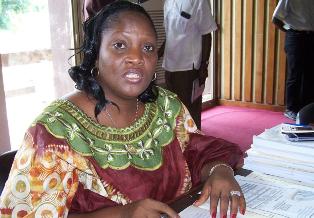Budget delay undermines accountability, transparency

Despite a 45-day delay requested by President George Manneh Weah in submitting the 2019-2020 draft National Budget to the 54th Legislature, the national financial instrument still languishes at the Executive, for unexplained reasons.
In his communication dated April 23, 2019, President Weah asked for a 45-day extension of the deadline for the submission of the 2019-2020 budget from April 30th to June 15, 2019, citing the Public Financial Management (PFM) Reform Law, which mandates the Executive, through the Ministry of Finance and Development Planning, to present the National Budget to the House of Representatives on 30th April each year for the purpose of through scrutiny by both the House and the Senate before approval.
With the 45-day delay, the budget was expected to have been submitted by the Executive on Monday, 17 June but it failed to do so accordingly, for the second time, leaving both lawmakers and spending institutions in suspense as to when it would land at the First Branch of Government for proper analysis.
We are afraid that persistent delay by the Executive could lead to a 4G passage of the budget by the Legislature, which should rather scrutinize the document, particularly performance reports of ministries and agencies from the previous fiscal period. In law, the budgetary cycle runs from July 1, 2019 – June 30, 2020.
Concern is mounting in the public about the delay, which is also negatively affecting public expenditure, slowing down various ongoing development projects, including payment of domestic debts.
The Executive Mansion thru the Ministry of Finance and Development Planning should exert every effort necessary to have the budget submitted immediately to allow comprehensive analysis before its passage into law.
In the same vein, we call the government’s attention to the recent IMF analysis on Liberia that stresses the to formulate realistic budgets and to implement a sound borrowing plan that ensures debt sustainability, while cautioning against non-concessional borrowing, including progress in public financial management reforms to improve the quality of spending in a resource-constrained environment such as ours.
The Executive Board of Directors stresses that significant fiscal adjustment is needed going forward, recommending that efforts should focus on mobilizing domestic revenue and rationalizing spending, especially the wage bill, while securing needed space for social and capital spending.
[bsa_pro_ad_space id=1]
Continuous overcrowding of the wage bill has stifled focus on other areas of the economy, regrettably denying key sectors such as Health and Education of vital support. The education system lacks qualities in terms of competent instructional staff and realistic policies.
President Weah thru the Ministry of Finance should delay no further in submitting the FY2019-2020 draft national budget to the Legislature to ensure thorough scrutiny not just for sake of check and balance, but transparency and accountability.




















